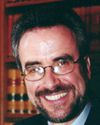Mr. Speaker, yesterday the Solicitor General of Canada said that CSIS has the ability to collect intelligence outside of Canada but the truth comes from the foreign affairs minister who said that there is a glaring deficiency in that department.
The defence minister said that the armed forces is up to the job of protecting Canada but the truth comes from the foreign affairs minister who said that Canada has inadequate defence capabilities.
The Prime Minister said that Tony Blair is fearmongering but the foreign affairs minister thinks the British prime minister's performance was great.
I agree with the foreign affairs minister on each of these points. Why is he the only minister over there who seems to face reality when it comes to fighting terrorism?













